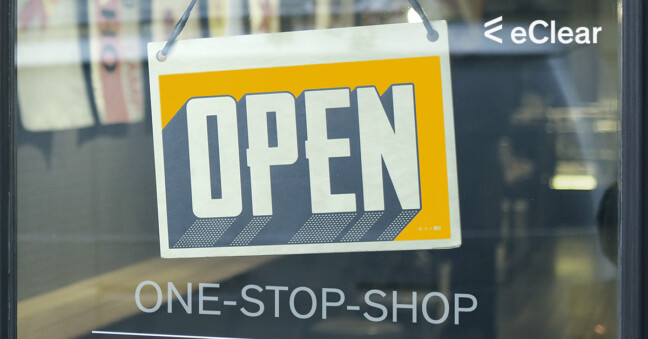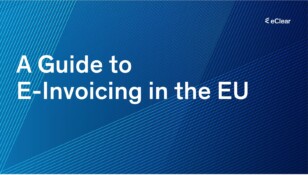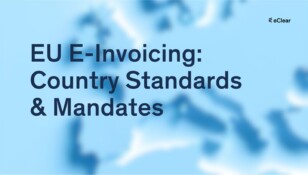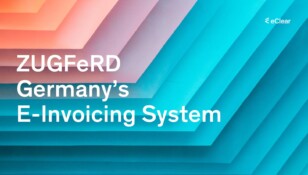The Spanish VAT
The Spanish term for turnover tax is “Impuesto sobre el valor añadido” – IVA for short.
The EU member Spain introduced a value-added tax in 1986. The Spanish Ministry of Finance is called “Ministerio de Hacienda y Administraciones Públicas”. The euro is the currency in Spain.

The tax rates in Spain
Standard tax rate (IVA General): 21%
Reduced tax rate (IVA Reducido): 10% (for example for certain food products, water supply, renovation, and repair work in private dwellings, etc.)
Super-reduced tax rate (IVA Superreducido): 4% (for example for certain food products, books, newspapers, magazines, etc.)
Zero-rating: taxation of some gold coins, ingots and gold bars; intra-Community and international air and sea transport
Note: Spain also has regulations on flat-rate taxation, tax exemptions and simplified procedures for small businesses. Extensive information on turnover tax is available here. However, much of the information is in Spanish. Companies from the EU Member States are not obliged to appoint a tax representative. Nevertheless, in case of language difficulties, it may be helpful to seek assistance. Therefore, a company from an EU Member State may voluntarily appoint a tax representative.
Related links
- Extensive, official information from the Spanish administration on the “Impuesto sobre el valor añadido“ : https://sede.agenciatributaria.gob.es/Sede/en_gb/iva.html
- Information on new regulations, forms, calculators and much more: https://sede.agenciatributaria.gob.es/Sede/en_gb/ayuda/manuales-videos-folletos/manuales-practicos/manual-iva-2021/capitulo-1-novedades-destacar-2021.html
- Detailed information for companies not resident in Spain: https://sede.agenciatributaria.gob.es/Sede/en_gb/no-residentes/iva-empresarios-profesionales-no-establecidos/identificacion-empresarios-no-establecidos.html
Input tax refund
Especially when companies operate across borders, they also have to pay VAT. Then, of course, the question of input tax deduction arises.
Suppose a company from Germany has registered for VAT in Spain and has also paid Spanish VAT based on invoices from companies in Spain. In that case, the input tax can be claimed accordingly in the VAT assessment in Spain.
Suppose a company from Germany has paid VAT in Spain and is not registered there. In that case, the input tax refund procedure comes into consideration for reimbursement. Detailed information on the procedure can be found here.
Declaration obligations in Spain
Many goods and services move across borders between Germany and Spain. There are different types of cases, and the following cases are prevalent.
Companies must comply with strict declaration obligations in Spain – including regular VAT returns. Those who regularly carry out a turnover in Spain must submit monthly, or quarterly returns similar to the advance VAT return in Germany. If no turnover was carried out in a month, a zero return must be submitted.
Services to a business in Spain (B2B)
Regarding other services to an entrepreneur, according to § 3a paragraph 2 UStG, the so-called reverse-charge procedure applies. This means that the German company does not show any VAT but must refer to the change of tax liability in the invoice and indicate its VAT identification number and the VAT identification number of the company in Spain. But be careful: In this context, recapitulative statements to the Federal Central Tax Office (Bundeszentralamt für Steuern, BZSt) should not be forgotten.
Deliveries of goods to businesses in Spain (B2B)
Suppose there is an intra-Community delivery of goods (§ 6a UStG) from a company in Germany to a company in Spain. In that case, the German company does not have to pay VAT, and the company in Spain must pay tax on the purchase. The prerequisite for this is that the goods are delivered or dispatched to Spain; the recipient is a VAT-liable entrepreneur in Spain and uses a valid VAT identification number vis-à-vis the company in Germany.
Services to private individuals (non-business) in Spain (B2C)
Suppose a company from Germany provides other services to private customers in Spain. In that case, German VAT must generally be shown (§ 3a paragraph 1 UStG). However, in the case of telecommunications, radio and television services, and electronic services (§ 3a paragraph 5 UStG), the country of destination principle applies – i.e., in principle taxation in Spain (note: delivery threshold 10,000 euros, see the following explanations).
Supply of goods to private individuals (non-business) in Spain (B2C)
For deliveries of goods to private customers in Spain, VAT must always be shown and paid in Spain. The company must then register accordingly in Spain. However, suppose only a small number of goods is supplied to private individuals in Spain. In that case, there is a simplification. Since 1 July 2021, an EU-wide supply threshold of 10,000 euros applies here (until 30 June 2021, the de minimis threshold of 35,000 euros applied for Spain). If this threshold is not exceeded, taxation takes place in Germany. This threshold also applies to other services according to § 3a paragraph 5 UStG – i.e., electronic services, telecommunications, radio, and television services. However, the entrepreneur can waive the application of the supply threshold (§ 3c paragraph 4 UStG).
Note
Special VAT rules apply to various supplies and services, for example, small entrepreneurs, flat-rate farmers, tax-exempt persons, certain other services according to § 3a paragraph 3, transport services (§ 3b UStG) and restaurant services (§ 3e UStG).
Information on VAT in e-commerce is also available from the Spanish tax administration: https://sede.agenciatributaria.gob.es/Sede/en_gb/iva/iva-comercio-electronico.html.
In general: If VAT has to be paid in Spain, the company that owes the tax must also register there, unless it participates in the One-Stop-Shop [link to https://eclear.com/de/thema/one-stop-shop/].
VAT registration in Spain
The Agencia Estatal de Administración Tributaria is responsible for the registration of companies from other EU countries. This authority also issues the VAT ID.
Contact details:
Agencia Estatal de Administración Tributaria
Calle Infanta Mercedes 37
28020 Madrid
Every standard rate, every reduction, every exemption
VATRules knows all the VAT rates you have to calculate in the EU-27 and UK and assigns them to your product groups.
Is the sale of goods taxable or tax-free? Which tax rate is applicable? — Regular, reduced or super-reduced? Which exemptions and re-exemptions apply?
VATRules applies this tax content in your ERP or shop system. Article-specific, always up-to-date, and all EU-27 (plus the UK).
Invoicing and mandatory electronic transmission in Spain
In Spain, too, invoices must be issued according to certain requirements. You can find detailed information on the compulsory details here.
Entrepreneurs and self-employed persons must issue an invoice and a copy thereof for the supplies of goods and services they carry out during their business. The copy must be kept. This also applies to down payments. Further information can be found here (also partly available in English).
Exceptions to the obligation to invoice apply in special cases and are explained here.
Simplified invoicing is possible, for example, for invoices whose amount does not exceed 400 euros. The invoice must then contain at least the following information:
- Invoice number/serial number
- Date of issue of the invoice
- Period of performance (if different from date of issue)
- NIF and name of the issuer of the invoice
- Designation of goods/services
- Tax rate or optionally“ incl. VAT
- Total amount
- Regarding corrective invoices, a reference to the corrected invoice.
Note if there is a case of tax exemption, special regulation for travel agencies or used goods or reverse-charge.
Further simplification options for invoicing are presented here.
In Spain, storage obligations and deadlines must also be met regarding invoices and receipts. Detailed information on the requirements is provided by the tax administration here.
The electronic invoice in Spain is called FacturaE. Invoices can be sent electronically in Spain – in the B2G (Business to Government) sector. This is even mandatory. Electronic invoicing is also widespread in the B2B sector. For this purpose, a platform is used to send and receive invoices. You can find more information here.
Simplified VAT reporting: the EU’s One-Stop-Shop
With the One-Stop-Shop procedure, online merchants can benefit from a simplification: Instead of registering in different countries for VAT purposes, the One-Stop-Shop (OSS) can be used. All reporting obligations and payment obligations are handled centrally at a single point.

Special tax features for particular Spanish territories
Spain includes the mainland in Europe and several islands (for example, the Canary Islands, the Balearic Islands and other islands off the coast of Morocco) and the cities of Ceuta and Melilla, which are located on the North African coast. Although these territories belong to Spain under sovereign law, different regulations apply in some cases – as well as VAT.
For example, section 1.10 of the VAT Application Decree clarifies that Spain plus the Balearic Islands belong to the Community territory – but without the Canary Islands, the cities of Ceuta and Melilla. These territories are classified as third countries. A comparable tax levies on the Canary Islands with “Impuesto General Indirecto Canario” (IGIC).









